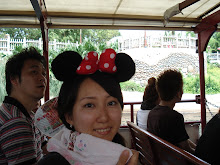Do you agree that men and women use language differently? In what areas?
I agree that men and women use language differently.
I think Japanese is similar to French that has distinctive men words and women words. If someone tells me to speak like a man, it is very easy to do that in Japanese. For example, I can change the way to say “I”, and the end of the sentences to how men say.
By analyzing “men words” and “women words”, I can see that women words are more formal than men words in Japanese.
There are distinctive differences between formal and informal words. I remember in an old traditional Japanese drama, I saw a wife was using words that respect others, but her husband was using more rough and strong words to her. It is clear that women and men have different gender roles. The drama showed me a difference of a power between the man and the woman. I remember I was told to speak like a lady when I was a child. I believe it is a result of cultural construction because our culture show children particular attitudes and languages men and women use differently.
It is interesting because formal language supposed to be a neutral language that is not men or women words, but it sounds more like a women. The reason is that formal language is modest and polite, which are similar to women words.
In a public, such as business meetings, people use formal language. I remember when I was a child, I saw my father was on the phone with his coworker, and I thought, “My dad is speaking like a woman!”
Nowadays, wives don’t use formal language to their husbands and husbands don’t use such a rough and strong language to their wives. However, there are still distinctive differences between how men and women talk.
Final Post
17 年前

1 件のコメント:
Hi Chocoyuko,
I think it is very interesting that the Japenese language actually has male and female words. It sort of made me think about how spanish uses feminine and masculine endings. For example, if an object is masculine then it would end in an "o" and if it is feminine then it would end in an "a". The interesting part is that some words naturally were given a gender even though they were just objects. It sort of reminded me about how you explain certain words sound more rough or masculine than others. I never really thought of language that way! Thanks for sharing!
コメントを投稿